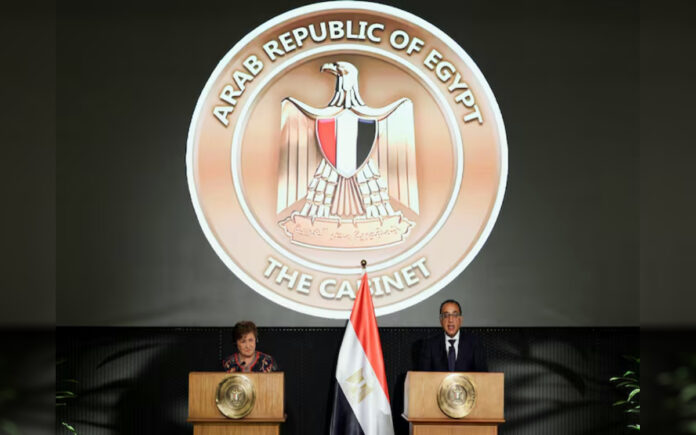Cairo: The International Monetary Fund (IMF) is set to begin its review of Egypt’s loan programme on Tuesday, as announced by Egyptian Prime Minister Mostafa Madbouly during a press conference with IMF Managing Director Kristalina Georgieva on Sunday. This review is pivotal, potentially unlocking over $1.2 billion in financing and marking the fourth assessment under Egypt’s current 46-month IMF loan programme, which was approved in 2022 and expanded to $8 billion earlier this year amid an economic crisis characterized by soaring inflation and acute foreign currency shortages.
Madbouly emphasized the importance of mutual cooperation with the IMF, stating that Egypt “expects continued successful and fruitful partnership in the coming period.” Georgieva echoed this sentiment, commending the fund’s collaboration with Egypt while acknowledging the broader global challenges affecting economies worldwide.
The upcoming discussions will also focus on supporting Egypt’s objectives in greening its economy and enhancing access to the Resilience and Sustainability Facility (RSF) as part of these efforts. Egypt has sought financing under the RSF since 2022, hoping it could unlock up to an additional $1 billion.
Also Read | Scholz Summons Key Ministers to Resolve Conflicting Economic Plans
In light of current economic conditions, President Abdel Fattah al-Sisi has cautioned that Egypt may need to reassess its expanded loan programme if international institutions do not account for the exceptional challenges the region is facing. Madbouly later clarified that discussions with the IMF during the fund’s annual meetings in October were not centered on additional financing but rather aimed at reassessing Egypt’s commitments, targets, and timelines.
Also Read | Czech Republic Joins Italy in Opposition to CO2 Fines for Carmakers
When the IMF completed its third review in July, it noted that inflationary pressures were gradually easing, foreign exchange shortages had been resolved, and fiscal targets—including those related to large infrastructure spending—were being met. However, the IMF also highlighted the need for increased efforts to expedite the divestment of state-owned enterprises and implement reforms to ensure fair competitive practices.



